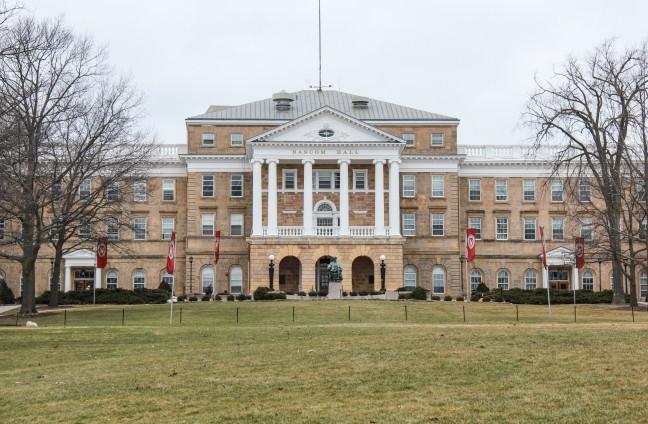A meeting between the Teaching Assistants’ Association and university officials resulted in a response from the University of Wisconsin Police Department Friday evening.
Graduate School Dean William Karpus, Vice Chancellor Laurent Heller and TAA leaders met Friday to discuss mandatory fees, wages and student inclusion in the decision making process.
According to a UW press release, the meeting was disrupted at approximately 2:20 p.m. by additional graduate students.
According to UWPD, police were called when the graduate students refused to leave after the building was closed. The students were given warnings before their assembly was declared unlawful per UW System policy, the press release said.
“The officers escorted 16 students, who remained cooperative and peaceful, out of the building and released them without incident,” UWPD’s press release said.
According to the TAA, Karpus and Heller proposed the meeting but left after 30 minutes.
In an email to The Badger Herald, TAA co-president Chance McMahon said that while the group believes meetings between TAA and UW administrators are an important piece of shared governance at the university, UW’s refusal to meet their goals makes that shared governance difficult.
“If UW-Madison administrators value graduate workers by committing to reducing the economic burden of graduate workers, who are dedicated to making UW-Madison a world-class institution, then we would be willing to talk with UW-Madison administrators at any time,” McMahon said.
Friday’s encounter was another chapter in TAA’s ongoing fight with the university.
Last year, UW implemented a policy that required graduate students’ fees be paid before they receive their first paycheck. Previously, graduate students had until the end of the semester to pay their fees, so they had the opportunity to accumulate three paychecks.
More recently, on April 5, an estimated 400 graduate students occupied Bascom Hall to express their dissatisfaction with university officials. In a Tuesday letter written in response to Heller and Karpus, TAA demanded a living wage, relief from fees for graduate workers and international students, consistent and quality policies, and a standing committee that includes graduate workers to improve policies.


